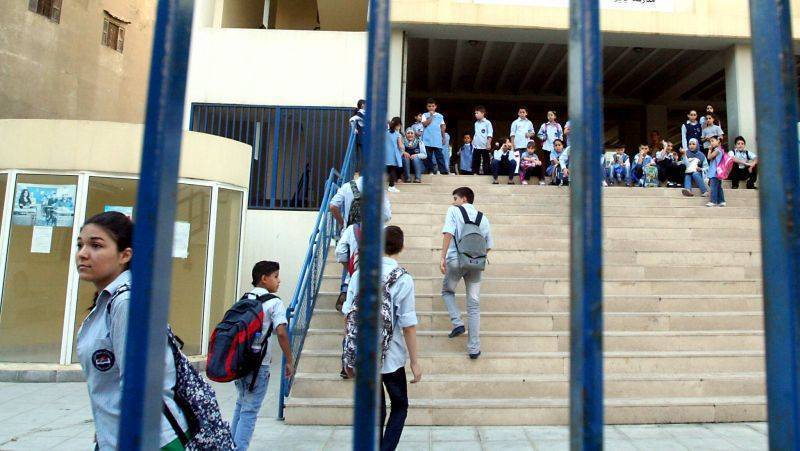
Students in a school in Beirut. (Credit: Hassan Assal)
BEIRUT — Most public school students are one to two full years behind their grade level amid an ongoing collapse of the Lebanese education sector fuelled by the political and economic crises, according to a report Human Rights Watch released Wednesday.
According to the report, "Lebanon’s schools were not providing quality education even before these crises, but the school closures since 2019 have accelerated the decline in learning. Grade 6 students, on average, answered fewer than half of the questions correctly on Arabic literacy tests in 2021-2022, and across all grade levels, most students are one to two full years behind their grade level, teachers estimated."
"The Education Ministry has still not secured sufficient funding for the school year set to begin in October, and Lebanese and donor officials are at loggerheads over funding for some teachers’ salaries," the report also said.
Cabinet approved $50 million (LL5 trillion) in August for the Education Ministry, out of a $150 million budget request. It is unclear when the funds will be transferred. The caretaker education minister said the funds would keep schools open only for three to four months, leaving at least four months unfunded.
"International donor funding is crucial for public schools, which teach both Lebanese and Syrian refugee children, but donors have not said how much funding they will provide for the coming school year," HRW said.
“Over the last four years, school closures in Lebanon have pushed over a million Syrian and Lebanese children to the brink,” said Bill Van Esveld, associate children’s rights director at Human Rights Watch. “If the government and foreign donors don’t reach an agreement that will keep schools open, Lebanon is looking at a children’s rights catastrophe.”
Since the Syrian conflict began, foreign governments have provided more than $2.5 billion to Lebanon to open schools to refugee children, and the number of students enrolled in public schools has nearly doubled.
"Lebanese and Syrian children have received little education since 2019 as schools were closed for various reasons including anti-corruption protests, Covid restrictions, and teachers’ strikes. Due to rapid inflation, teachers’ salaries are worth just one-sixtieth of their former value. Principals earn about $65 per month," the report added.
The education sector in Lebanon like most sectors is experiencing collapse amid an ongoing economic crisis that Lebanon has been suffering from for almost four years.